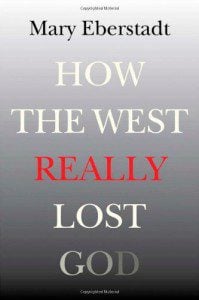
A household is a small, multipurpose institution. It binds men and women to each other even as it ties together the generations. It is the great integrator, promoting mutual dependence within the routines of domestic life.
Households don’t stand alone though. Isolated, they die. But when they exist in clusters they multiply. When two households come together, a third emerges.
Historically households have been productive. It is only with the rise of the corporate economy that households have been striped of their productive functions. Now most households are centers of consumption.
When they were productive though, not only did they lower the cost of living by sharing expenses, they also increased productivity by a commonsensical division of labor. And this surplus productivity went to market. This outward turn made many of the other institutions that we take for granted today possible.
At the center of the household was productive property. Before the invention of productive property people lived and worked together, naturally. But these groups tended to live off the surplus of the land as hunter gatherers, or they lived off other groups of people rapaciously.
Today we’re on the far side of the household economy. It has been replaced by a corporate economy. Corporations now hold most of the productive property in the world. These organizations look more like hives than homes, even more, they resemble machines, since they make no provision for reproducing their workers. Workers do get replaced, but reproduction happens somewhere else. And even in those places where provision for maternity and even paternity leave are generous, those who remain childless serve the interests of the their employers better than those who do not.
We owe many of the wonders of the modern world to the corporate economy, but is it sustainable?
There’s evidence that it is not. Throughout the developed world fertility is so low now social welfare institutions are decaying. And if you need to have public service announcements to encourage fertility, as is the case with Denmark, you know the incentives do not favor childbearing.

Christianity and Households
Is Christianity sustainable without household economics? That’s the question I’ve been thinking about for a while now and the conclusion I’ve come to is, no, it is not. The two are inextricably bound up with each other.
Wherever household economies have been supplanted by corporate ones–either in capitalist or communist societies–the church has suffered. But wherever household economies are strong, Christianity is strong.
(This may be true for other religions too–I suspect it is the case with Judaism and Islam.)
The thesis isn’t original to me by a long shot. Mary Eberstadt in her book, How the West Really Lost God shines the light of social science on the subject. I would say though, that the economic dimension is left undeveloped by Eberstadt and others. I suspect that’s so because turning away from, or at least radically re-working the corporate economy, seems quixotic to these people.
Christianity and the Substance of Its Metaphors
The language of Christianity is steeped in household economics. Covenants were made between houses. (Remember, a kingdom is governed by a ruling house.) And the promises and threats instituted by covenants were heritable. God is not just a Spirit, he is both Father and Son. And the elect are “joint heirs” with the Son. (The preposition “in”–as in being “in Christ”–refers to a political position as well as a spiritual one.)
Christianity is also inconceivable without natalist language. We are born again. The church is our Mother as God is our Father, and so on.
I can’t help but think the drive to purge Christianity of it “patriarchal language” is a byproduct of the corporate economy. (Sorry feminists, but you are merely the tools of a new master.) I also suspect this is suicidal for the Christian faith. If not that, it is a development that is not so much evolutionary as revolutionary. I think we are seeing a new religion emerge.
But can a religion that serves the corporate economy survive for long? I doubt it.
I think we’re left with the following options.
Either the material world and its economic systems have no essential correspondence to spiritual realities and consequently our metaphors can only be temporary, coming and going with the times. (Apparently this is what many progressives believe.)
Or there is a correspondence that is mutually reinforcing and essential. If that’s the case, then the ways productive households function really do give us insight into something deeper and more fundamental. If that is the case, the analogies that have been handed down to us are not disposable. God really is a Father, the Church really is a Mother.
And finally, if there is a real correspondence, the corporate economy is doomed, and so are those religions that have adapted themselves to it.
I’m opting for doomed.












